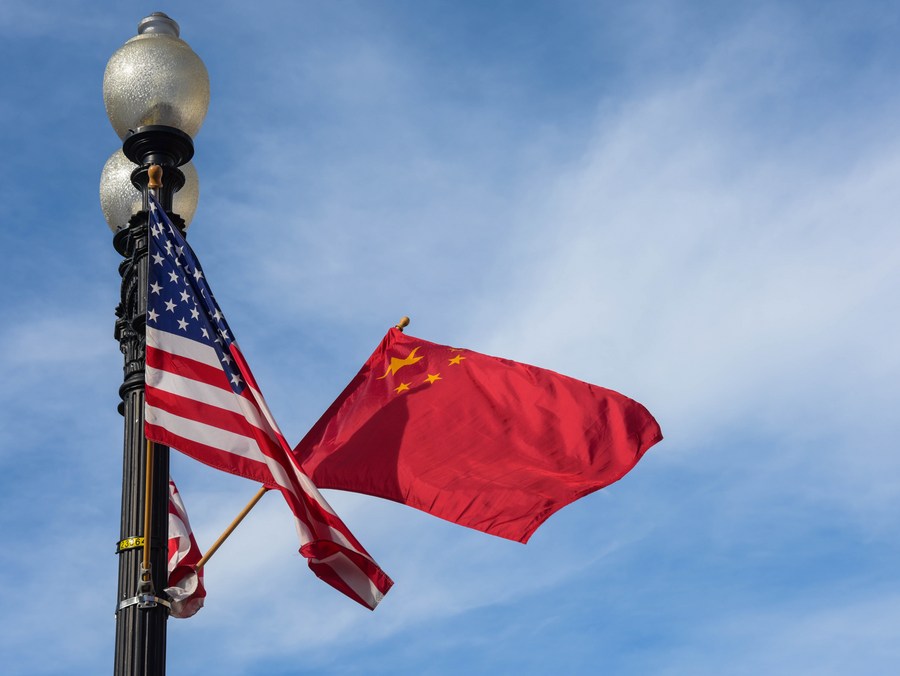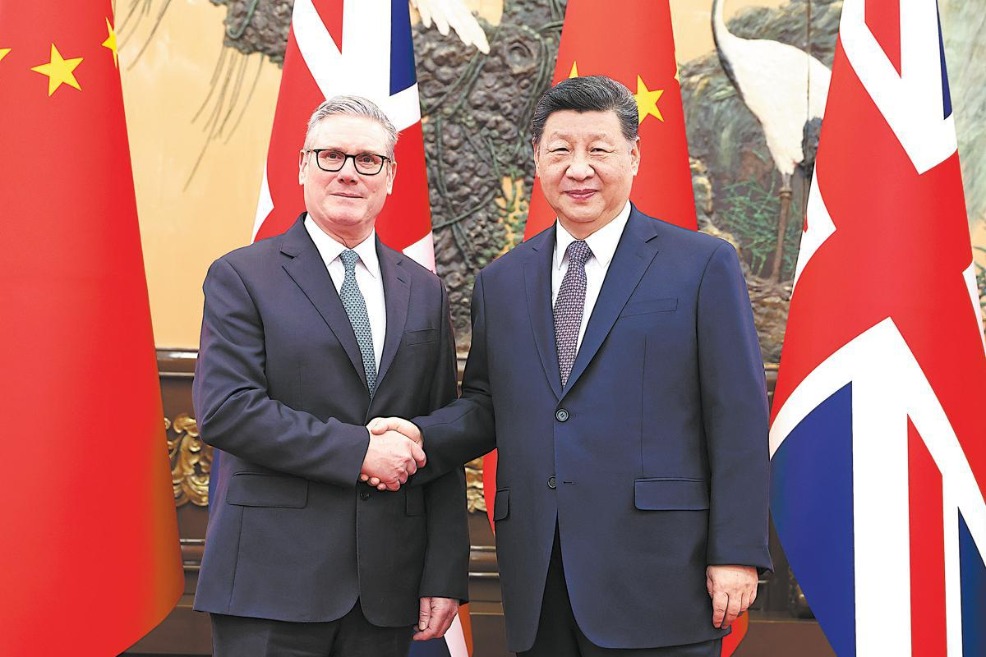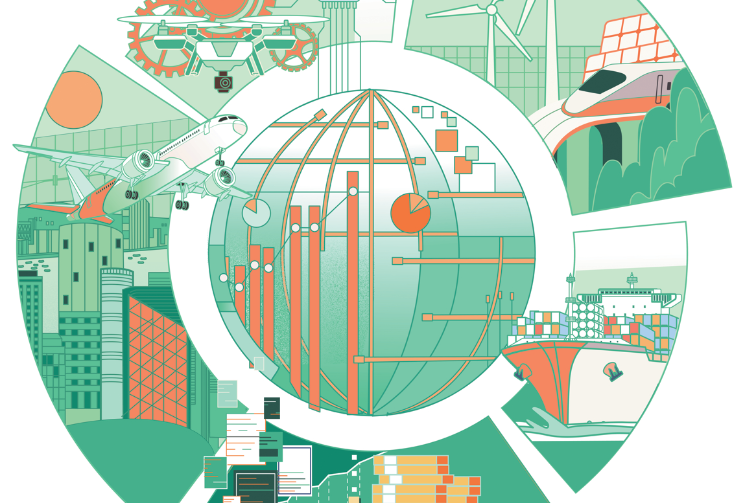China a provider of global public goods, not a free-rider


In May 2022, American scholar Joseph S. Nye Jr. published an article in International Affairs entitled How not to deal with a rising China: a US perspective, in which he cites the "Kindleberger trap" to explain the current Sino-American situation. Charles Kindleberger, an economist at the Massachusetts Institute of Technology, argues that the disaster of the 1930s was caused by the US replacing Britain as the world's largest power but failing to play its role in providing global public goods as Britain did, leaving no country in the international community willing or able to take the lead, leading to disorder in the international order, global economic collapse, genocide and world war. Nye said the Chinese government only wants to "free ride" and replace the US in providing international public goods, but does not have the ability and leadership of the latter to provide public goods to the world.
Obviously, Nye's claim is not consistent with the facts. China has never intended to replace the US (an imaginary fear of the Americans), but only intends to develop the economy so that the Chinese people can live a good life. More importantly, China is solving its own problems while still doing its best to provide the world with the public goods it needs. It is understandable that Western politicians have turned a blind eye to this due to political bias, but as a world-renowned scholar, it is puzzling that Nye and his likes do not see China's enormous contribution in this regard.
As the world's second-largest economy, China has always been a provider of global public goods. Chinese government understands China's huge size and market are inseparable from the rest of the world, and at the same time, China's future and destiny are also closely linked with that of the world, which has been demonstrated by China's adherence to global trade and continuous opening to the outside world.
Since the reform and opening-up, China has implemented a comprehensive opening to the outside world, and its economic model has changed from inward to outward, thus providing high-quality and inexpensive public goods to the world on a large scale. As a result, developed countries could step out of the mire of global economic crisis of the 1970s and continued to enjoy the high standard of social welfare and prosperity brought about by the rising of Chinese.
When it comes to global and regional public goods and services related to the destiny of mankind, such as global climate change, environmental quality, data security and food security, China is not only an active participant, but also an initiator and leader. On September 24, 2022, State Councilor and Foreign Minister Wang Yi gave the answer when he addressed the general debate of the 77th session of the UN General Assembly at the UN Headquarters in New York. Wang Yi said that in response to the common concerns of all countries on data security, and China has launched the Global Data Security Initiative to provide reference for the formulation of global digital security rules. In the face of global climate change, China is firmly committed to ecological priority, green and low-carbon development, has announced an ambitious "dual-carbon" goal, and promoted the implementation of the Paris Agreement. Afforestation accounts for one-quarter of the world.
In the face of global food security issues, China has put forward an initiative for international food security cooperation. Since the beginning of this year, more than 15,000 tons of emergency humanitarian food aid has been provided to developing countries in need. In maintaining global public security, China has always been a mainstay. It has sent the largest peacekeeping force to the UN and made great contributions to maintaining regional stability and providing humanitarian relief. For regional public goods, the Chinese government has established the Asian Infrastructure Investment Bank. It is well-known that Asia is one of the fastest growing regions in the world, but many countries still face inadequate financing for infrastructure. The establishment of the AIIB has provided a new financing channel for the Asian region, which will help fill the financing gap for infrastructure construction and promote the development and growth of the regional economy. By 2022, the AIIB has approved 191 projects, attracting more than $85 billion of capital from various sectors, including the private sector, benefiting 33 intra-regional and non-regional members, and playing a positive role in promoting infrastructure development in transport, energy, urban development, water resources and social infrastructure development in public health and education.
China does not mean to replace other countries' global public goods but to enrich the toolbox of it. China respects Western civilization and its values, but opposes the West's forced promotion of its own values around the world. How non-Western countries choose their path of development should be determined by the will of their people and their history and culture, rather than through threats of force and political blackmail.
After decades of hard work, China has found a unique path of economic development and social governance with Chinese characteristics. It is one of the most important public goods that China has provided to the world, which has provided new ideas and references for non-Western countries to explore their national governance. The concept of a community with a shared future for mankind is China's wisdom and plan for building a harmonious and healthy global village. It emphasizes that all mankind who live together in the global village have shared interests and destiny.
Today, Western neocolonialism rages continuously, the international order is at the fringe of collapse, the Cold War mentality causes the confrontation among regional economies, and the resentment of southern countries against the West has deepened. Against this backdrop, China has put forward the Belt and Road Initiative, which aims to build a pan-regional economic cooperation platform with no threshold and no exclusivity. On this platform, participating countries can freely participate in pan-regional economic cooperation without violating their commitments in the alliance. This is China's Chinese solution for regional development and stability and also a demonstration of its commitment to international responsibilities.
In the field of diplomacy, China's peaceful multilateral diplomacy is another proud global public good, which aims to establish equal and mutually beneficial cooperative relations with all countries, promote international cooperation based on equality, justice and multilateral consultation, and realize the multi-polarization of the world and the democratization of international relations. One successful example of the realization of this diplomatic idea was the rapprochement between Saudi Arabia and Iran. In the face of the chaos triggered by the US in the Middle East, China abandoned the Cold War and geopolitical mentality, adhered to the principle that the Middle East belongs to the Middle East people, fought against the formation of factions and division of spheres of influence, treated each other with mutual respect and honesty, and actively engaged in diplomatic mediation in order to maintain peace, prosperity and stability in the region. It eventually led to a rapprochement between Saudi Arabia and Iran, resolving the grievances that have long plagued the Middle Eastern nations.
The US as the world's superpower, however, has not provided the world with public goods and services commensurate with its great power status, but instead has sold weapons to the world, created regional tensions and conflicts, disrupted the world financial order by taking advantage of the hegemonic position of the US dollar, divided the world wealth, bullied the world through military strength, and put its national interests above that the world. The trade and financial war against China, suppressing China's high-tech industry, opposing globalization, and insisting on fully decoupling from China, all these led to the instability of the international supply chain. In the Russia-Ukraine crisis, the complete weaponization of US dollar led to the suffering of all countries, and many countries had to return to monetary isolationism and conservatism, which seriously damaged the international order and the provision of international public goods.
Once the resolutions of international institutions do not meet the interests of the United States, the US will not hesitate to withdraw from the group, such as US withdrawal from the Paris climate agreement (2017), the Iran nuclear agreement (2018), the United Nations Human Rights Council (2018), INF treaty (2019), the World Health Organization (2020). The series of actions show that the US has no intention to maintain the status of global public goods and services providers. Nye said China "has benefited from multilateral economic institutions - but it tries to manipulate these institutions to serve its own interests. China has also created parallel institutions such as the Asian Infrastructure Investment Bank, and uses its Belt and Road Initiative to compete with the United States."
Western scholars should start from an objective standpoint and view the world in a global landscape, for the global public goods we have offered have been negligible compared to the enormous challenges facing our collective world. Therefore, the West should put aside prejudice and hostility, encourage all countries to create public goods that benefit human development. Whether they are ideological or material, they are all invaluable to our response to the serious crises like climate change, global health, economic development, trust and so on.
Guo Jiulin is a professor of American studies at Dalian Minzu University and Zhao Momo is a student of Chinese International Education at the same university.The views don't necessarily reflect those of China Daily.
If you have a specific expertise, or would like to share your thought about our stories, then send us your writings at opinion@chinadaily.com.cn, and comment@chinadaily.com.cn.


































